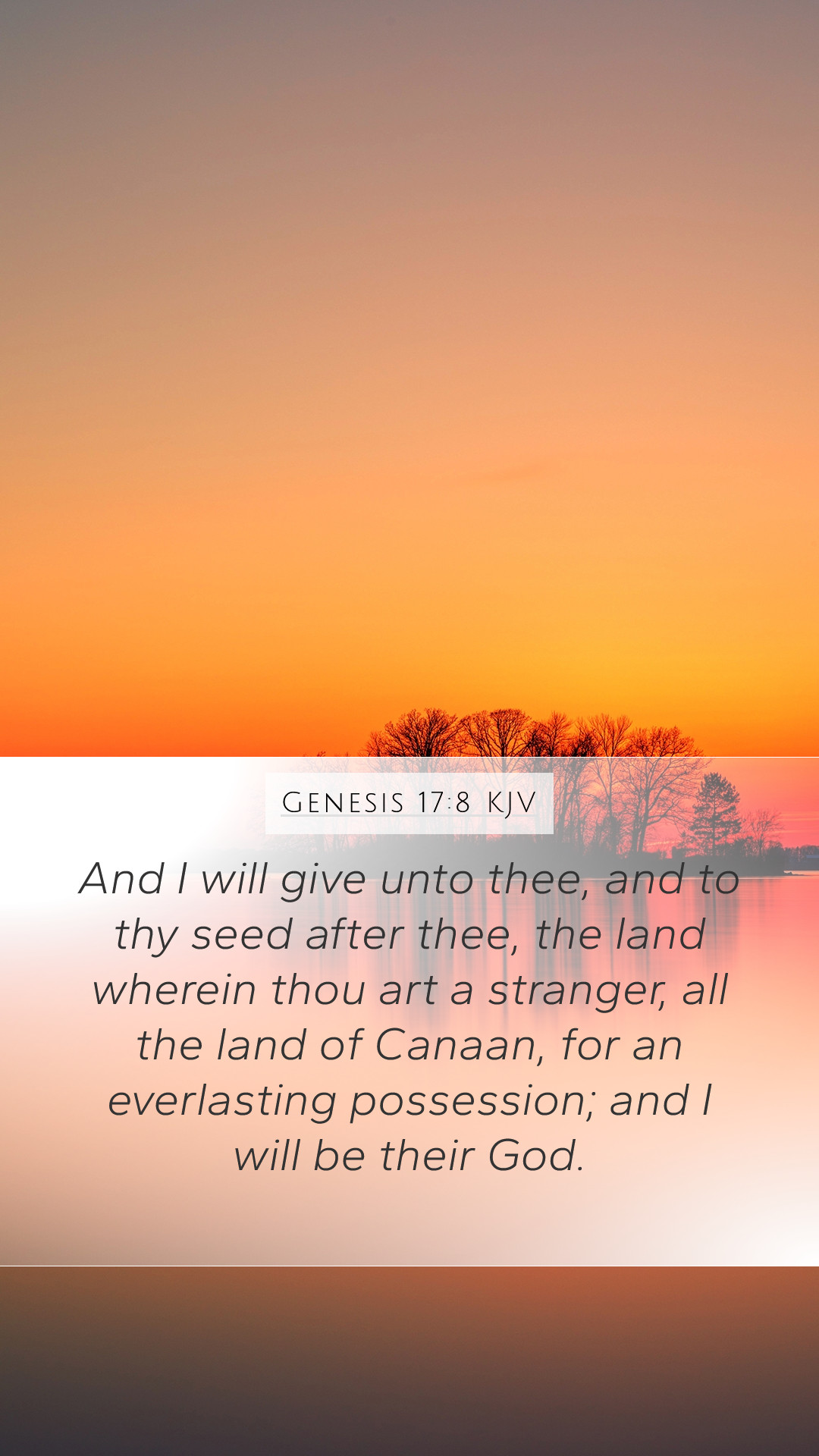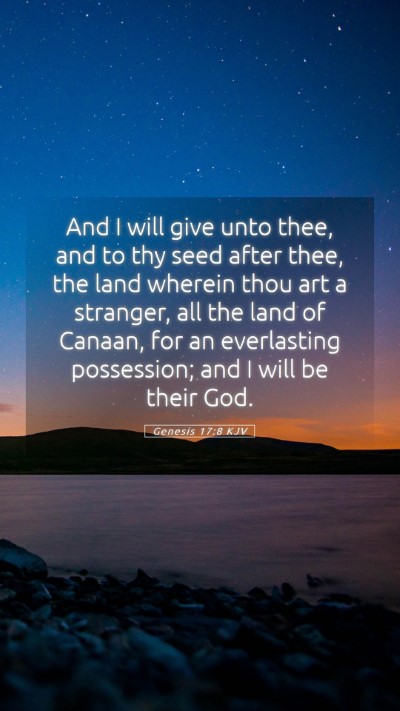Understanding Genesis 17:8 - A Comprehensive Bible Verse Commentary
The verse Genesis 17:8 states:
"And I will give to thee, and to thy seed after thee, the land wherein thou art a stranger, all the land of Canaan, for an everlasting possession; and I will be their God."
This verse is pivotal in the Abrahamic covenant, establishing a promise from God to Abraham and his descendants. Below, we delve into various commentaries to enrich our understanding of this scripture.
Summary of Bible Verse Meanings and Interpretations
1. The Covenant of Land:
- Matthew Henry: Henry emphasizes that God's covenant with Abraham is a vital promise, asserting the geographical boundaries of the land which would hold significance for the Israelite nation. The land of Canaan is portrayed as not merely a physical territory but a divine inheritance.
- Albert Barnes: Barnes references that the covenant extends not only to Abraham but includes his descendants, indicating a lineage of promise. The grant of land underlines God's fidelity to His people and hints at Israel's future possession.
- Adam Clarke: Clarke discusses the implications of "everlasting possession", indicating that this promise transcends generations and signifies a stable heritage for Israel.
Key Themes in Genesis 17:8
2. Divine Assurance:
This verse reassures Abraham of God’s unwavering commitment. The phrase "I will be their God" signals an intimate relationship between God and His people.
3. Significance of Names:
The transformation of Abram's name to Abraham signifies his new identity and mission. This covenant builds on that foundation, where the promise of seed and land marks the unfolding story of Israel.
Additional Insights from Commentaries
4. Historical Context:
The context of Genesis 17 is critical. Understanding ancient Near East covenants helps us appreciate the weight of God’s promise to Abraham, who at this point is still childless and a foreigner in Canaan.
- Matthew Henry: Highlights the faithfulness of God in fulfilling His promises throughout history.
- Adam Clarke: Discusses the conditional nature of some covenants, contrasting them with the unconditional aspects of this particular promise.
Cross References Related to Genesis 17:8
- Genesis 12:7: God’s promise of land to Abraham is reiterated, forming the foundation of the covenant.
- Genesis 15:18: The specifics of the land boundaries are elaborated, indicating the extent of God's promise.
- Exodus 3:8: God remembers His covenant with Abraham, emphasizing the importance of this promise through generations.
Application of Genesis 17:8 in Daily Life
Understanding this verse invites readers to consider the implications of God's promises today. The assurance of God's presence—"I will be their God"—is a comforting reminder that belief in God's promises shapes our identity and purpose.
Conclusion
This in-depth analysis shows Genesis 17:8 as a cornerstone of biblical promises. Revealing God’s enduring commitment to His people, it invites further study and reflection.
For individuals and bible study groups, this verse poses opportunities for rich discussions on covenant theology, the significance of land in the biblical narrative, and personal applications of God's promises. Moreover, online Bible study tools and resources can amplify understanding and engagement with similar themes throughout Scripture.
Bible Study Resources
To deepen your exploration of this and other verses, consider utilizing the following:
- Bible Study Guides: Comprehensive studies available online.
- In-depth Bible Study Courses: Enrich your knowledge through structured learning.
- Bible Study Lessons: Engaging lessons focusing on key biblical themes.


